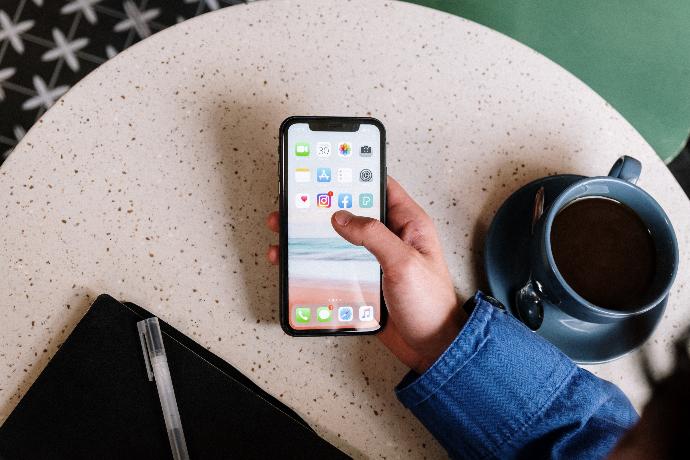If you’ve been considering taking Arabic courses, then we’re sure that the question “is it hard to learn Arabic?” Have crossed your mind.
We understand that tackling such a complex language might be daunting at first, but let us put your mind at ease.
Learning Arabic, and especially one of the easier dialects such as Lebanese Arabic or Syrian Arabic, can be manageable and simple if you consider our words of advice.
We present to you four of our valuable tips that will help you in achieving your Arabic learning goals — and the best part is that they can be applied to any other language that you’re learning.
1. Use Flashcards
Do you keep forgetting any new words you’ve recently learned? Then let us introduce you to the proven science of spaced repetition, or in Layman’s terms, flashcards.
The thing about flashcards is that they are effective no matter the level you’re at, even a beginner that’s still learning the Arabic alphabet will benefit from making flashcards.
If you’ve been learning Arabic online or taking Arabic classes, then we advise you to create a deck of cards using the vocabulary that you’re struggling with the most.
Spaced Repetition is the most effective way to memorize any difficult nouns or those pesky verb conjugations.
2. Read as much Arabic as you can
We understand that reading a book in Arabic can be a bit overwhelming, especially for a beginner. There’s no need to bust out your copy of Khalil Gibran’s The Prophet just yet.
Instead, Let us take a few baby steps first. Let’s explore a much simpler option — Social Media.

Find Arabic artists that you admire and follow their social media accounts.
Keep up on their posts and read the comments of their fans for better immersion in the dialect and the colloquial language.
If you’ve been learning Lebanese Arabic online or even Syrian Arabic, we’d advise you to follow any Lebanese musicians you can find, such as Elissa or Nancy Ajram. The reason for that is that musicians like them tend to address their fans in the Lebanese dialect.
There’s no better way to learn how to communicate like a local than to learn the way they talk online to one another.
If instead, you’ve been taking standard Arabic courses (MSA), then another tip that we can give you is to change your phone’s settings to the Arabic language.
That way, you’ll passively learn some of the most essential nouns that you can use on a daily basis, such as the words for Camera, Phone, Contacts, Calendar, etc…
3. Commit To A Daily Schedule
Even the best online Arabic courses will only take you so far if you’re not willing to put in the work. You’ll need discipline if you’re ever going to be making some constant progress.
Make sure to dedicate about 30 minutes daily to learning Arabic, huge emphasis on the word DAILY. The only way that you’re ever going to see some real progress is if you stick religiously to a schedule.
If you think that 30 minutes is a bit hard for you, then do 10 minutes, or even 5 minutes. Consistency is key.
Set a study plan for each day and commit to it. For example, dedicating Mondays for verb conjugations, Tuesdays for vocabulary, Wednesdays for grammar lessons, etc…
Make sure to stick to the plan you made. When language learning, quantity is as important as quality.
4. Watch Arabic Movies / Tv Shows
This is the most useful tip we have to offer you, and it will keep you entertained throughout your language-learning journey.

The best way to get immersed in Arabic is to watch all the wonderful Films and TV shows that the Middle East has to offer.
Recently, Netflix has added a large collection of Lebanese movies that you can check out if you’re trying to improve your knowledge in Lebanese Arabic.
What makes Lebanese movies so special is their wide variety of genres. If you’re looking to cry your heart out and be depressed for a month or two, you can watch Nadine Labaki’s Capernaum.
If you’re looking to laugh and have fun, you can check out comedies such as the wonderfully made Khabsa and Vitamin, both are superb comedies.
One genre that Lebanese Cinema hasn’t dipped its toes in yet is the horror genre. Though if you’re a fan of horror, then don’t worry, we got just the thing for you.
The Blue Elephant is an Egyptian production that rivals even that of Hollywood’s, and is sure to satisfy any fans of thrillers and horror movies. You can also check out Netflix’s own Egyptian production called Paranormal. Both are excellent if you’re trying to improve your Egyptian dialect and have a good time while doing so.
If you’re strictly learning Modern Standard Arabic, then you’ll have to rely on movies that are historic in nature and set in the middle ages.
Watching Arabic Films is a fun and versatile way of expanding your Arabic vocabulary and improving your dialect of choice. Bonus points if you use Arabic subtitles too, which can improve both your reading and your listening skills.
Register with us if you’re looking for online Lebanese Arabic courses, as well as Syrian Arabic lessons. We also offer affordable online courses in Modern Standard Arabic (Fusha or Traditional Arabic).
Make sure to try out our first free week of lessons, no payment needed! Whether you’re a beginner or an intermediate, or if you’re starting from scratch, we got you covered.
We hope you liked this post, please stay tuned as we've got plenty more for you in the coming weeks. See you next time, and happy learning !
This Blog Post Was Written By : Omar MOHAMAD




